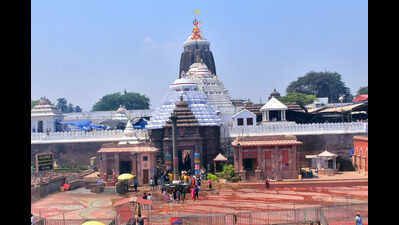ARTICLE AD BOX

Bhubaneswar: Recent protests in Nepal have impacted the number of visitors to Puri Jagannath Temple from the neighbouring country. According to servitors, nearly 500 devotees from Nepal used to visit the Puri shrine in Sept-Oct, but that number has almost dwindled to zero as many Nepalese tourists have cancelled their trips due to the ongoing unrest.“For generations, our family has hosted devotees visiting the Jagannath Temple from Nepal. We typically see an influx of Nepalese pilgrims during Sept and Oct. Although some families expressed their intention to visit Puri this month, they had to cancel their plans due to the violence,” said Madhab Mohapatra, a servitor of Jagannath Temple and former member of the shrine’s managing committee.His elder brother, Siba Sankar Mohapatra, said they expected the arrival of at least 500 devotees from Nepal during this peak season.
“As the ‘tirtha guru’ (spiritual guide and priest) for Nepalese devotees visiting Puri, we are deeply saddened by the violence. We pray to Lord Jagannath for peace and happiness to return to Nepal,” Siba Sankar said.Historical and religious connections exist between the Puri temple and Nepal. The former kings of Nepal held the rare honour of offering prayers from the jewelled throne within the temple’s sanctum sanctorum, a privilege not even extended to the current king of Puri.
Even after monarchy was abolished in Nepal in 2008, this rare honour was granted to former king Gyanendra Bir Bikram Shah Dev, during his visit to the 12th-century shrine on Feb 11, 2018.An official from the Shree Jagannath Temple Administration (SJTA) highlighted another connection between the temple and Nepal. “We used to receive kasturi (musk) from Nepal during the king’s reign. After the monarchy was abolished, we stopped getting it,” the official said.Kasturi, now sourced domestically, is a key ingredient in preparing the herbal paste that is applied on the faces of the sibling deities.



.png)
.png)
.png)
















 2 hours ago
3
2 hours ago
3







 English (US) ·
English (US) ·